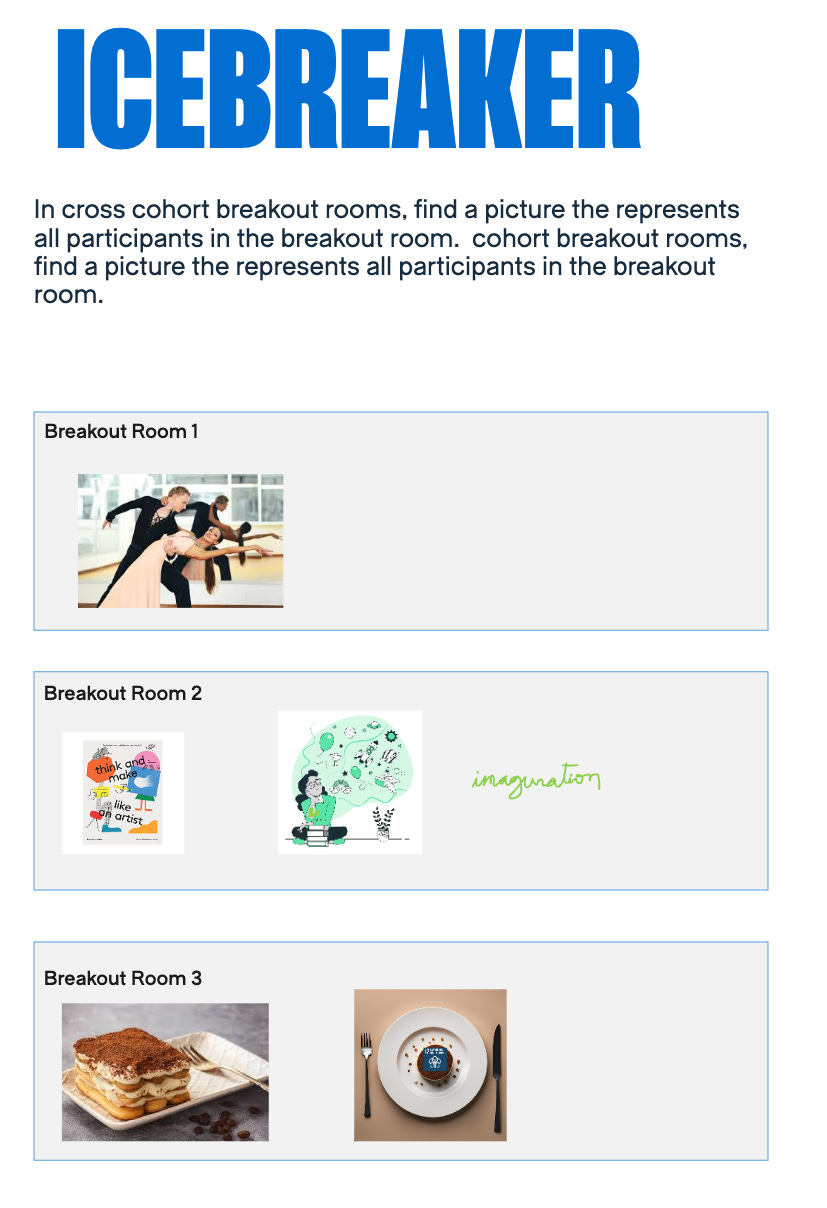Learning through stories: bridging cohorts for systemic change 🤝
Discover how story exchanges are bridging diverse perspectives within CPI's Collective!
Last week, we brought together two of CPI’s Collective cohorts—measuring systems change and decolonising the development sector—for a cross-cohort session to exchange learnings and insights.
At CPI, we believe breaking down silos through cross-sectoral collaboration is key to driving systemic change. To test this, we designed this session to foster connection and share learnings. We kicked things off with an icebreaker, where participants were randomly placed in breakout rooms and tasked with identifying an image representing a shared experience.
Building our cross-cohort toolkits
The primary goal of this session was to build a practical toolkit that participants could use in the experimentation phase. Participants shared stories about overcoming challenges in their respective systems through a storytelling exercise, highlighting the practices, frameworks, and resources that helped them navigate these obstacles. This reflective process surfaced useful tools and revealed critical lessons learned along the way.
Stories we heard
During the breakouts, participants exchanged stories, challenges, and insights:
In the decolonisation cohort, participants shared stories about...
Community-led visioning for wetland restoration
Challenge: Understanding what people value and how to co-design a shared vision for regenerating the Nalubaaga wetland.
Tools: Ko-design Roadmap & Kinship Ecology
Approach: To solve this challenge, they used a bottom-up approach grounded in cultural values and collaboration (practice) to foster trust and create conditions for hope and care. Despite community divisions, their engagement with three neighbourhoods helped residents connect to the collective initiative, setting the stage for a larger effort to restore the wetland and foster governance.
Regenerative digital governance sourced from local wisdom
Challenge: One participant worked with a successful UK agency to digitise governments in low- and middle-income countries (LMICs) without imposing Western ideals while navigating global development banks' rigid funding cycles. The goal was to create regenerative digital governments in collaboration with indigenous communities.
Approach: Through globally applied digital maturity assessment and learning sessions inspired by insights from other African countries, the participant worked with development banks, management consultants, public servants, and political leaders to address the challenge.
We heard stories about measuring systems change...
Overcoming barriers to system change through technology and partnerships
Challenge: One participant faced fostering long-term commitment to system change, hindered by fear, reluctance, and a lack of capacity to use technology. This issue primarily involved funders, government stakeholders, and funding recipients.
Approach They sought partners committed to using technology, such as the Common Approach to Impact Measurement, while dealing with capacity and resource limitations. The focus remains on finding new partners to support technology adoption for tracking system change.
Creating space for shared learning in social enterprises
Challenge: One participant was helping a social enterprise incubator understand and communicate its systemic impact across different portfolios. The effort involved top management, portfolio leaders, and team members who lacked the bandwidth to reflect and apply system change frameworks.
Tool: Water of Systems Change
Approach: Leveraging the water of systems change framework and a learning mindset, much of the impact assessment was completed by their team. This limited the depth and nuance of the stories that could have emerged. Moving forward, the experience highlighted the importance of creating space for teams to engage more deeply in their learning and reflection.
Story Synthesis:
To conclude, we used the Water of Systems Change framework to reflect on the conditions participants were most interested in addressing. Many participants wanted to shift mental models and power dynamics, recognising these as levers for transformative and relational change. A common thread was the role of decolonisation in challenging entrenched power dynamics. Even in the measuring systems change cohort, participants used language closely aligned with decolonisation, such as prioritising evaluation practices drawn from Indigenous and global majority peoples.
Looking ahead: Preparing for experimentation 🧪
Next session, we will embark on an exciting phase of experimentation. Participants will design and test strategies related to their learning inquiries, applying the insights and tools that surfaced in this session.
Stay tuned for key takeaways from their experimentation journey!
📣 Interested in continuing to receive real-time updates on the insights and experiments coming out of CPI’s Collective?
Follow our Substack for stories of change, experiment updates, and more. We can’t wait to meet you on this journey.
The CPI’s Collective team: Aurélie, Naja, Saumya, Morag and Javiera
Global Development Initiative









